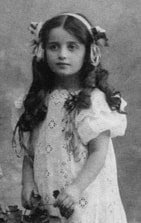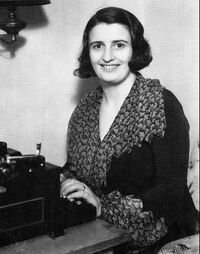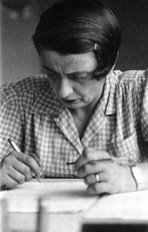We the Living -
80th Anniversary Restoration Project

We the Living 80th Anniversary Restoration Project
We the Living premiered in 1942 and to celebrate the 80th anniversary of this extraordinary film
Duncan Scott Productions produced a new edition of the film that is digitally restored, rejuvenated–and in high-definition for the first time.


Since the backdrop of We the Living is Soviet Russia where Rand grew up, people are often curious about whether the novel is autobiographical. There are many parallels between Rand’s early life and that of her fictional heroine, Kira.
Ayn Rand, born Alice Rosenbaum in 1905 in St. Petersburg, was twelve-years-old when the Communists took power. Even at that early age, she rejected the ideology that man must live for the state. She hated the sordidness of Soviet life, with its unrelenting search for bare necessities. She suffered through long years of near-starvation and threat of diseases. Like Kira, she witnessed political purges during her university years, narrowly avoiding being purged from Leningrad University.

Wanting desperately to write the kind of novels that would never be permitted in the Soviet Union—stories dramatizing her concept of the highest in human potential—Rand was determined to live in what she regarded as her spiritual homeland: America.

Rand was twenty-one-years old when she arrived in the United States and headed for Hollywood. A chance encounter with famed director Cecil B. DeMille led to an eight-year “Hollywood period” for Rand where she worked as a movie extra, a wardrobe assistant, and a junior scriptwriter.
In 1934 Rand submitted to publishers the manuscript of her first novel, We the Living. At that time, the United States and most of Western Europe were swept by a post-depression wave of socialist ideology, a period known as “The Red Decade.” Her new novel about Man against the State was almost uniformly rejected by literary critics and the intelligentsia, but gradually attained a popular following.


Rand’s next novel would make her famous. Reviews of The Fountainhead, Rand’s story of intransigent individualism, were negative. But within a few years after publication, sales exceeded 400,000 and led to a Warner Brothers’ movie version.
Rand’s final novel and magnum opus, Atlas Shrugged, took her thirteen years to research and write. She saw it as a philosophical novel that challenged the cultural tradition of two-and-a-half-thousand years. Its publication brought her worldwide and lasting fame, but unleashed a storm of controversy that continued the rest of her life.


The ideas dramatized in her novels inspired Rand to develop her unique philosophy, Objectivism. As she wrote about and lectured on her ideas, interest in her philosophy flourished worldwide. By the late 1960s, Rand was an international figure with a fiercely devoted following and her novels had become modern classics.
Rand died in 1982, leaving a legacy of challenging and inspiring ideas that have become a firmly entrenched part of Western culture.
